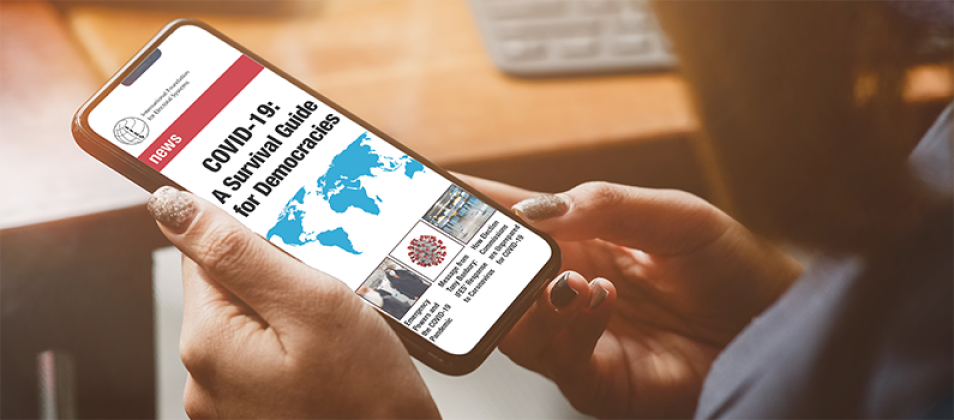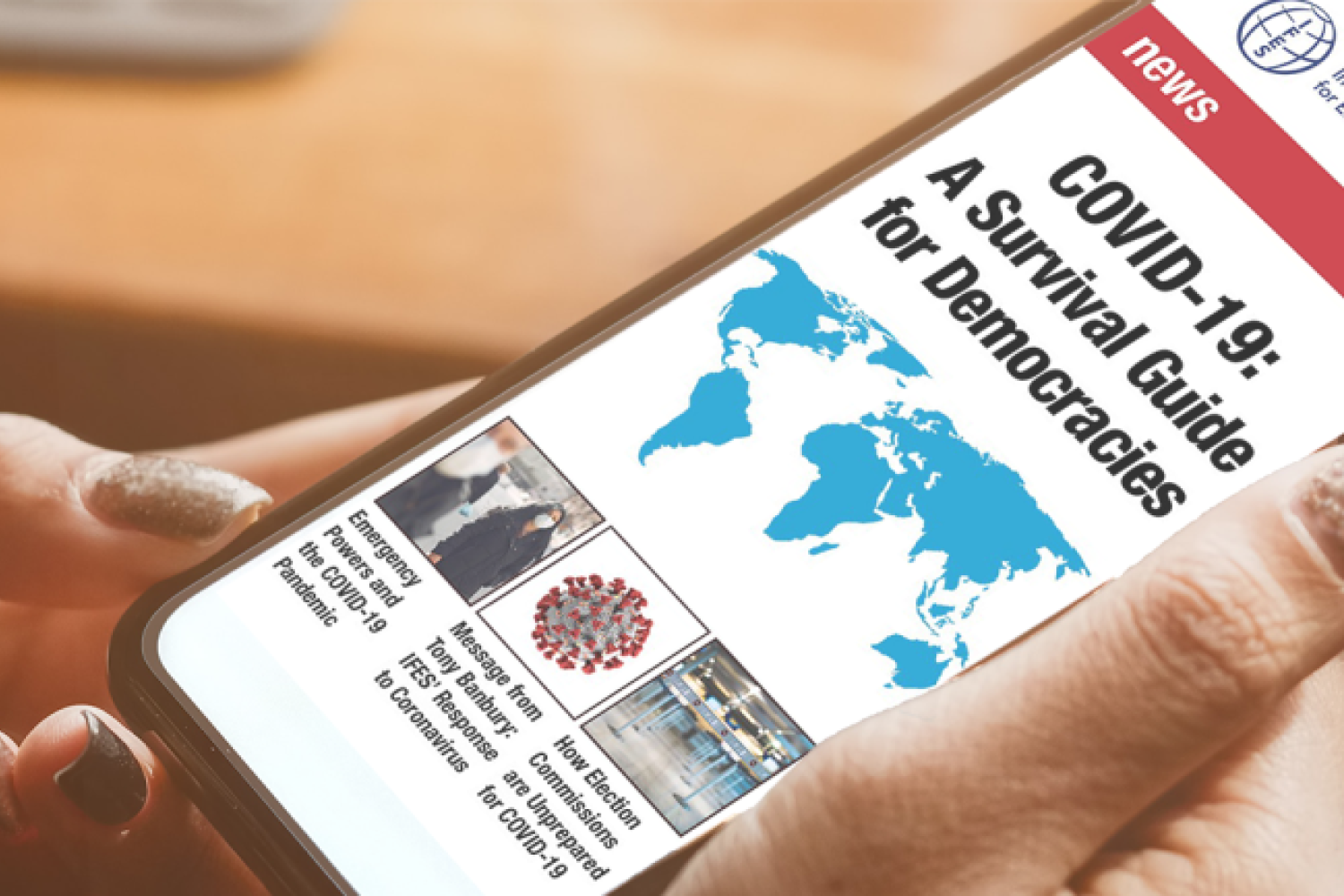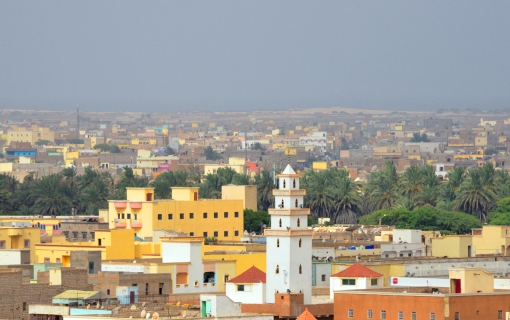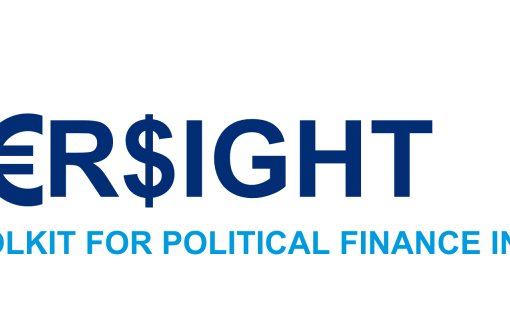
Low Voter Turnouts, Fear, Disinformation and Disrupted Supply Chains: How Election Commissions Are Unprepared for COVID-19
by Dr. Fernanda Buril and Dr. Staffan Darnolf
All electoral activities planned for the near future will be affected one way or another by the COVID-19 pandemic. From what has been seen so far, election commissions’ responses have varied between 1) moving forward with elections with no changes to procedures, 2) moving forward with elections and implementing some measures to mitigate risks to voters and poll workers and 3) postponing elections, sometimes indefinitely. None of these responses have completely addressed the public’s concerns about their health and democratic rights. Either due to lack of sufficient and appropriate measures and equipment to protect the population or weak communication campaigns that fail to inform and instruct voters, elections around the world continue to be victims of the pandemic.
Fear of infection was arguably the main driver of France’s record-low voter turnout during the first round of its municipal elections – around 46 percent, compared with 63.5 percent in 2014. Iran’s parliamentary elections also suffered a hit, as only 43 percent of people across the country cast their ballots (only 25 percent in Tehran), a drop from the 62-percent turnout of 2016 and the lowest rate since the 1979 Islamic Revolution. In the United States as well, turnout in some Democratic primaries was arguably strongly affected – in Illinois, voter turnout decreased by 25 percent in comparison with the 2016 primary. In Arizona and Florida, however, states that held primary elections the same day as Illinois, overall turnout actually increased thanks to strong early voting and vote-by-mail participation.
Voters are not the only ones who are scared. Election officials in Ohio struggled to recruit additional poll workers ahead of its primary elections after hundreds dropped out fearing COVID-19. The Ohio elections ended up being postponed a few hours before polls were supposed to open. Election commissions’ efforts to send cleaning supplies and protective gear to poll workers such as gloves and masks seem insufficient to dissipate the fear of getting infected, especially when no appropriate training on how to use such products is provided. The global shortage of masks, gloves and hand sanitizers might also soon make it impossible for election commissions to meet the needs of all polling stations.
... even if organizers manage to take sufficient precautions to ensure the safety of elections, pandemic-related disinformation might still disrupt democratic processes.
The Russian government-funded RT news network did not take long to capitalize on the problems experienced by election commissions and argue against holding elections during this time altogether. RT reported that French poll workers contracted COVID-19 during the March 15 elections and suggested that the decision to hold them was not wise. The tweet quoted by RT comes from a Twitter account that was deleted and then reinstated as private. The poll worker who posted that he had tested positive was also a political candidate.
In Niger, coronavirus-related disinformation has been used to disrupt electoral processes. The national electoral commission issued an official communication reporting that malign actors faked an announcement by electoral authorities that voter registration processes had been suspended in certain regions. This indicates that, even if organizers manage to take sufficient precautions to ensure the safety of elections, pandemic-related disinformation might still disrupt democratic processes.
Even if a country's rate of infection is not very high, its electoral processes can still be affected, for example, by disruptions to the supply chain of electoral material produced in other countries or regions more strongly hit by the health crisis. In the Central African Republic, for example, even though only five cases of COVID-19 have been confirmed so far, election preparations might still suffer setbacks as the election commission awaits the delivery of Android tablets used for voter registration that are produced in China. Printing of ballot papers in European factories could also be affected.
Now more than ever, election commissions around the world need sound advice and technical assistance to navigate the complexity of each election context, coordinate with the relevant health authorities, consider all relevant public health and political factors, and make sensible decisions to safeguard voters and electoral processes.
As health crises of this proportion are relatively rare, many election commissions, especially less experienced ones, will struggle to respond quickly to these new challenges. As can be seen in the few elections that have already taken place amid this crisis and in the more than 35 countries that postponed elections planned for the upcoming months, election commissions have been largely unable to provide guarantees to the public that in-person voting is safe or to make the necessary adjustments to restore public trust. They are struggling to comply with electoral calendars or make adjustments in accordance to legal provisions; to implement new and improved procedures that reduce person-to-person contact; to secure funds and timely procure new and unexpectedly needed materials; and to develop protocols to mitigate the risk of contagion.
Now more than ever, election commissions around the world need sound advice and technical assistance to navigate the complexity of each election context, coordinate with the relevant health authorities, consider all relevant public health and political factors, and make sensible decisions to safeguard voters and electoral processes. The first critical step would be to undertake a thorough risk assessment of the electoral processes from a public health perspective and identify effective measures to create a sufficiently safe environment for an election to move forward. This cannot be done in isolation, as it requires credible public health expertise and buy-in from across the political divide. Elections are inherently political events and, as so, a country’s decision to go to the polls during or in the immediate aftermath of a pandemic should be based on a common understanding of its risks and benefits.
Read the International Foundation for Electoral Systems’ (IFES) guidelines and recommendations for electoral activities during the COVID-19 pandemic.
Dr. Fernanda Buril is a senior research officer and Dr. Staffan Darnolf is the senior global electoral operations and administration advisor at IFES.












